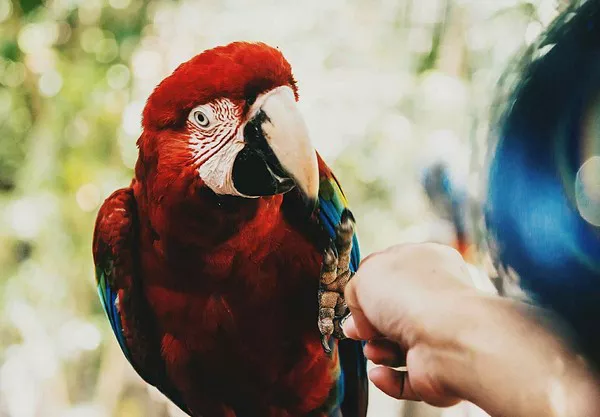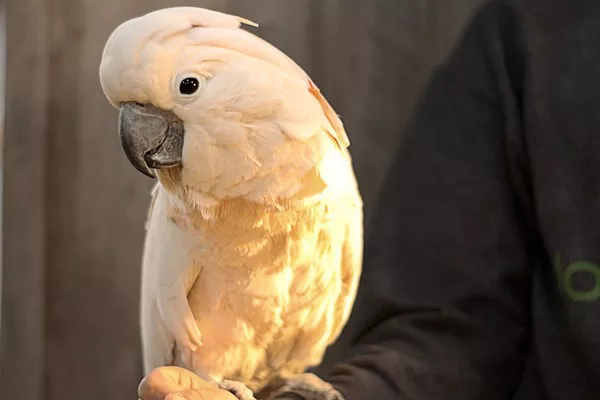Sphynx cats, with their distinctive hairless appearance, large ears, and wide eyes, have become one of the most recognizable and sought-after breeds among cat lovers. Despite their unique, bald look, the Sphynx is known for being incredibly affectionate, playful, and energetic. However, their lack of fur has led to a common question among potential pet owners: Are Sphynx cats high maintenance?
In this article, we’ll explore the various aspects of owning a Sphynx cat and whether their care requirements make them a high-maintenance pet. We’ll examine their grooming needs, health considerations, personality traits, and other factors that contribute to the overall maintenance of the breed. By the end of this article, you’ll have a better understanding of whether the Sphynx cat is the right companion for you.
What is a Sphynx Cat?
The Sphynx cat is an exotic breed that originated in Canada in the 1960s. It was the result of a natural mutation where a domestic cat gave birth to a hairless kitten. Through selective breeding, the Sphynx became recognized as a distinct breed with its own set of characteristics. Despite their lack of a fur coat, Sphynx cats are not a truly “hairless” breed. They actually have a fine layer of peach-fuzz-like down, which gives their skin a soft and velvety feel.
Sphynx cats are known for their sociable, curious, and playful personalities. They are typically very affectionate with their owners, often following them around and seeking constant attention. Sphynx cats are also highly intelligent and energetic, enjoying interactive play and even learning tricks.
However, there are several aspects of Sphynx cat ownership that require a deeper level of commitment compared to traditional fur-covered breeds. This is what we will delve into to determine whether they are truly “high maintenance.”
Grooming: More Than Just Bathing
One of the biggest differences between Sphynx cats and most other breeds is their lack of fur. While this may seem like an advantage—no shedding, no hairballs, and no regular brushing—it doesn’t mean that grooming is completely out of the picture. In fact, grooming a Sphynx cat can be more labor-intensive than maintaining the coat of a furry cat.
Bathing Needs
A major grooming requirement for Sphynx cats is frequent bathing. Without a fur coat to absorb oils from the skin, these oils can build up on the surface of their skin, making it greasy or sticky. If left unaddressed, this can lead to skin irritation, acne, or even fungal infections. Most Sphynx owners find that they need to bathe their cat about once a week, though some may need more frequent baths depending on their skin type and activity levels.
Bathing a Sphynx cat requires special care, as their skin is delicate and sensitive. You’ll need to use a gentle, hypoallergenic pet shampoo that is safe for their skin. Additionally, make sure to dry them thoroughly after bathing, as dampness can cause skin issues. Some owners prefer to use baby wipes or pet wipes in between baths to clean their cat’s skin, especially around the ears, face, and paws.
Skin Care
In addition to regular bathing, the skin of a Sphynx cat needs careful attention. Without fur, the skin is more exposed to environmental factors like dirt, dust, and the sun. You should be cautious about how much direct sunlight your Sphynx is exposed to, as their skin is more prone to sunburn than cats with fur. Applying a cat-safe sunscreen can help protect them during outdoor activities, but many owners opt to keep their Sphynx indoors to avoid excessive sun exposure.
Another consideration is the build-up of wax or oils in the ears. Sphynx cats are prone to ear infections due to the accumulation of wax in their large ears. Regular cleaning of the ears is important, and you should use a safe ear-cleaning solution recommended by your vet. This task should be done carefully to avoid damaging the sensitive ear canal.
Nail Clipping
Like all cats, Sphynx cats require regular nail trimming to keep their claws from becoming too long and uncomfortable. However, due to their affectionate nature and tendency to want to be close to their human companions, Sphynx cats may not always enjoy the process of getting their nails clipped. Many owners find that getting their Sphynx used to nail trimming from an early age can make this task easier. Be sure to use a pair of sharp, cat-specific nail clippers to avoid causing any discomfort.
Health Considerations: Potential Issues for Sphynx Cats
While the Sphynx breed is generally healthy, there are some health considerations that owners need to be aware of. As with any breed, genetic predispositions can lead to certain health issues. It’s important to work with a responsible breeder who conducts health screenings to reduce the risk of inherited conditions.
Cardiomyopathy
One of the most common health issues found in Sphynx cats is hypertrophic cardiomyopathy (HCM), a form of heart disease that affects many cat breeds. In HCM, the heart muscle becomes abnormally thickened, which can interfere with the heart’s ability to pump blood effectively. While not all Sphynx cats will develop HCM, the breed has a higher incidence than others, and the disease can be severe if left untreated. Regular veterinary check-ups and heart screenings are essential for early detection and management.
Skin Issues
Sphynx cats can experience skin problems, including rashes, fungal infections, and acne. Since they have no fur to protect their skin, they can be more prone to environmental irritants. Regular baths and proper skin care can minimize the risk of these conditions, but it’s important to keep an eye out for any signs of skin irritation or infection, such as redness, bumps, or sores.
Temperature Sensitivity
Sphynx cats are highly sensitive to temperature extremes. Without a fur coat, they can easily become cold in cooler weather. This means that Sphynx owners often need to provide extra warmth, especially in winter. Some Sphynx cats enjoy wearing sweaters or jackets to help regulate their body temperature. Conversely, they can also overheat in hot weather, so it’s important to keep them in a cool, shaded area if the temperature rises too much.
Dental Care
Dental care is another important aspect of owning a Sphynx cat. While they don’t have any specific breed-related dental issues, all cats benefit from regular dental hygiene. Sphynx cats are no exception and may be more prone to plaque buildup due to their diet and genetics. Brushing your Sphynx’s teeth a few times a week can help maintain good oral health and prevent dental diseases.
Personality Traits: Are Sphynx Cats High Maintenance?
One of the most endearing qualities of the Sphynx cat is its affectionate and outgoing personality. These cats are known for their social nature and desire to be around their human companions. They are often described as “dog-like” in their loyalty and attachment to their owners.
Sphynx cats are highly playful and energetic, and they thrive on interactive play and mental stimulation. They enjoy chasing toys, learning tricks, and engaging in activities that keep them physically and mentally active. Because of their high energy levels, they may require more attention and engagement from their owners compared to other breeds.
However, this level of sociability also means that Sphynx cats can be quite demanding in terms of companionship. If left alone for extended periods, they may become lonely or stressed, which could lead to destructive behaviors or anxiety. If you have a busy lifestyle or are away from home frequently, a Sphynx cat may not be the ideal pet unless you can provide them with plenty of stimulation and social interaction.
Feeding and Diet Considerations
Sphynx cats have a high metabolism due to their increased energy levels and the fact that they burn more calories to maintain body temperature. As a result, they tend to be more active and require more food than other cats of similar size. You’ll need to provide them with a high-quality, protein-rich diet to support their energy levels and overall health.
Some owners may choose to feed their Sphynx a raw or homemade diet, but it’s important to consult with a veterinarian to ensure that their nutritional needs are being met. Always ensure they have access to fresh water, and be mindful of their weight, as Sphynx cats can be prone to obesity if they overeat or do not receive enough exercise.
Conclusion
In conclusion, Sphynx cats do require a higher level of maintenance compared to other cat breeds, but this doesn’t necessarily mean they are “high maintenance” in a negative sense. Their grooming needs, health considerations, and energetic personalities all demand time, effort, and attention. However, for the right person, the Sphynx’s affectionate nature and unique appearance can make these extra responsibilities worthwhile.
Related Topics:
























